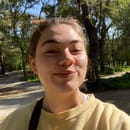To start from the beginning: language was my first love and my above-average elementary school reading level felt like proof that it loved me back. Some nights I’d reverse-storytime my parents, eager to read to them from whatever book I happened to be tearing through at the time. One fateful night stands out in my memory: I was living on the edge of a serious obsession with Lemony Snicket’s The Series of Unfortunate Events, embarking on the first installment with formative glee. As I read aloud to my dad, cozy as all hell in my sock monkey pajamas, he stopped me mid-sentence to gently correct a word I had mispronounced. The word in question? Cupboard.
I couldn’t believe it. Why would two stand-alone words sound different when they’re mushed together? Suddenly, I felt stubbornly protective of a random kitchen noun. My version, cup-board, sounded natural, intelligent, maybe even British. Cubbird sounded unnatural and lazy. I swore to my dad that I would never pronounce it his way, but he laughed and assured me I would. And I did – I do. There’s something feverish about the feeling of embarrassment that comes with learning that you’ve been mispronouncing a word all along. If you’re like me, you want to keep pushing. You want to maintain the original paradise inside your mind with all of its silly assumptions and untampered pattern recognition. English is a notoriously inconsistent language after all. If the sentence “Buffalo buffalo Buffalo buffalo buffalo buffalo Buffalo buffalo” is grammatically correct (see titular Wikipedia article), then surely I can enunciate “cupboard” as I see fit.
I’m writing this article to tell you that actually, I can. I won’t, because cubbird is engrained in me now, but it’s liberating to know what I’ve learned in my Linguistics classes here at UW, which is that language has no rules.
(Disclaimer: don’t put that in an essay or anything; it’s a matter of principle.)
Grammar, “correct” pronunciations, saying “May I go to the bathroom” instead of “Can I go to the bathroom?” is all arbitrary and invented by systems of authority to bring speakers of our delightful English language closer to the idyllic standard. Linguistics is punk like that. In Ling 200, you learn that standard language is prescriptive, all about “should.” You should stop misusing “literally,” you shouldn’t end a sentence with a preposition, etc. In reality, language is, by nature, descriptive; it’s just an anthropological tool. It’s a means of communication, a chance at connection. The closest thing to a rule we really have, then, is that whoever you’re communicating with needs to understand your choice of expression. Beyond that, it’s a free-for-all. A person who says “I was literally so late” knows, in that moment, the message they are trying to convey and how that message will take form in a listener’s head. We know, as listeners, that their inclusion of “literally” serves a purpose, subtle but serious; it intensifies the story. The idea that we should constantly be revising ourselves to make our speech more palatable to authority is not only oppressive, it’s ridiculous. Finding words that feel right, that reach for that human connection, is already hard enough. Why should we limit language further than it limits us?
Even that mangy excuse for a rule has its exceptions. Poetry, for example, does not hinge upon the reader’s comprehension. It is the poet’s prerogative to utilize the realm of language, to embody it. Language is like music; you can’t tell someone they’re doing it wrong just because you don’t like how they’re doing it.
Language is anarchy, so go ahead and mispronounce a word or two today. See how it feels. And then enroll in Ling 200!


